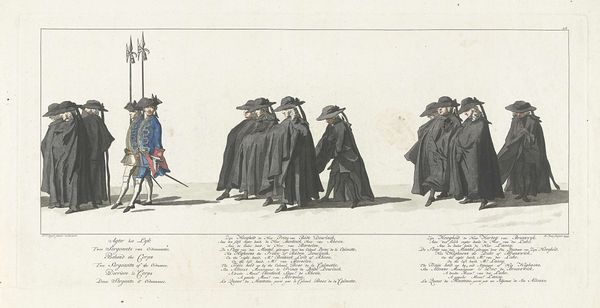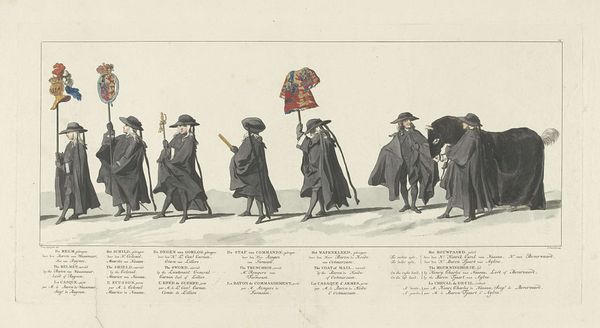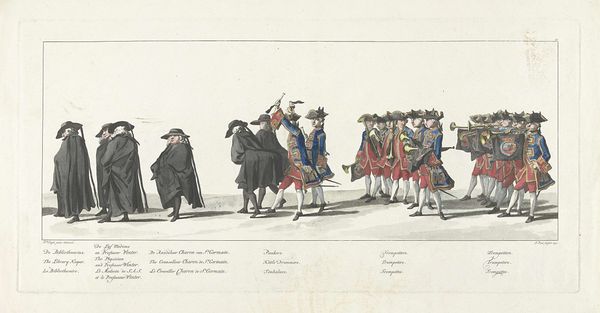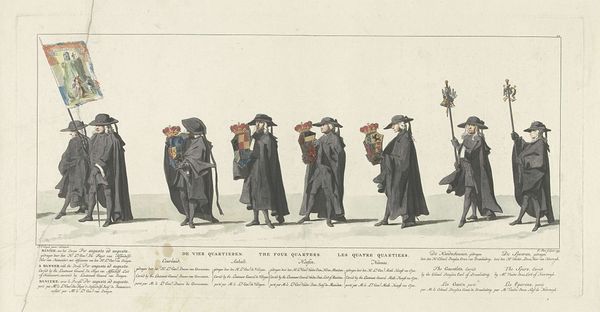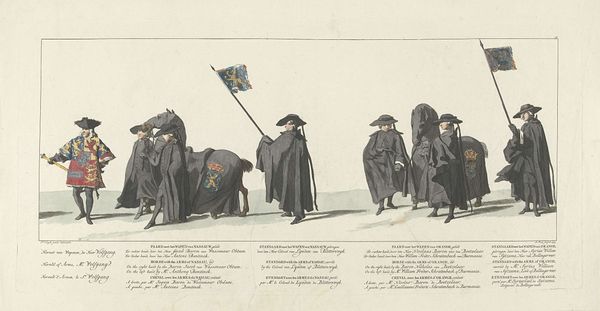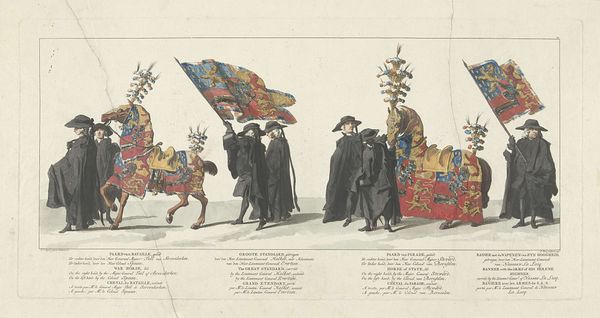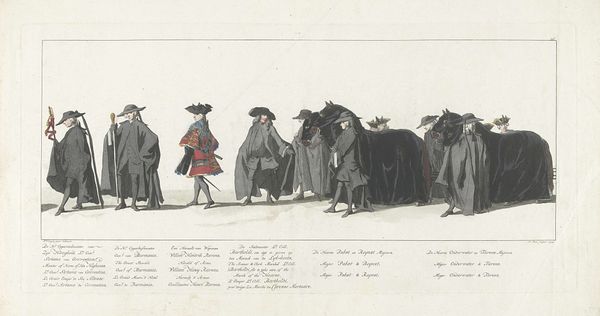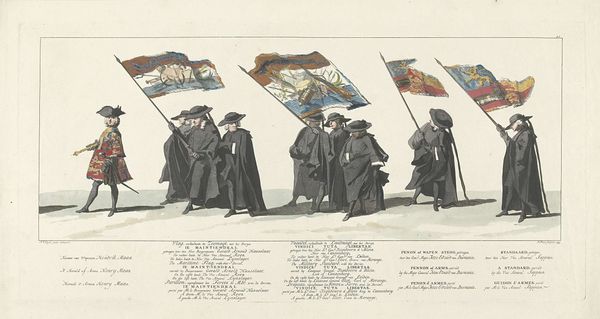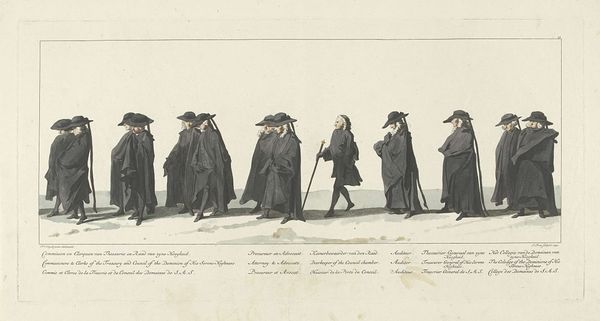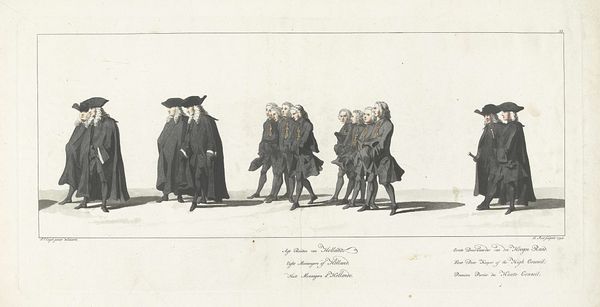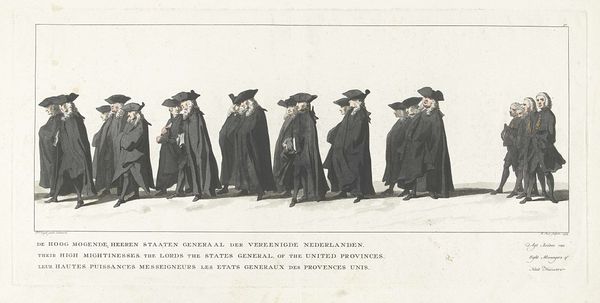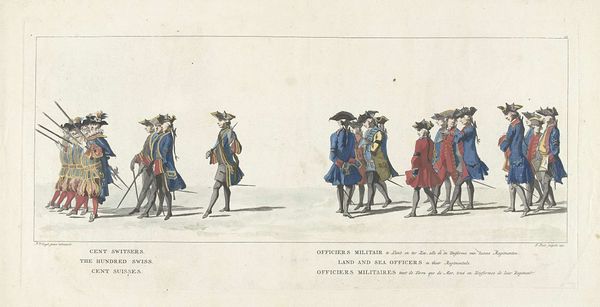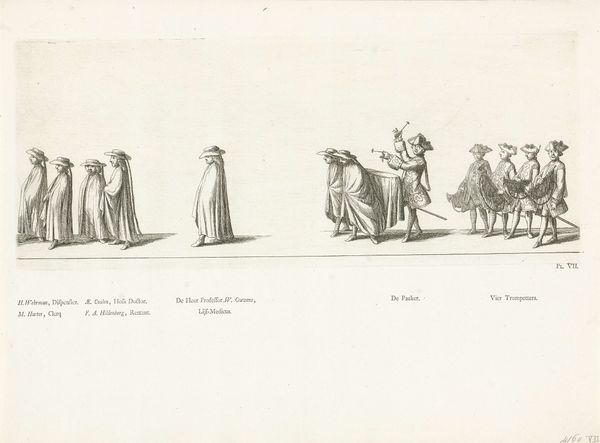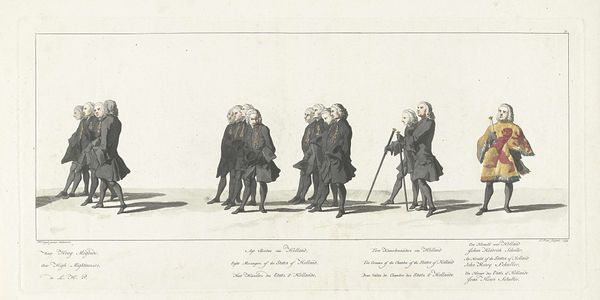
print, engraving
#
portrait
#
baroque
# print
#
traditional media
#
historical photography
#
historical fashion
#
history-painting
#
engraving
Dimensions: height 270 mm, width 560 mm
Copyright: Rijks Museum: Open Domain
Editor: So, this is Jan Punt’s engraving, "Lijkstatie van Willem IV, 1752, plaat 24," made in 1753. It depicts Willem IV's funeral procession. It's held at the Rijksmuseum. It has such a somber and regimented feeling to it. I’m struck by how much importance is placed on this material culture. What do you make of this print? Curator: It’s fascinating how engravings like this served as mass-produced records of state events. Consider the labour involved in producing numerous identical images and the social impact of circulating these depictions of power and mourning to a wider audience. The Baroque era was very opulent, do you think there is still an expression of those tastes reflected in this work? Editor: That’s interesting, because I wouldn’t immediately call this Baroque, and I was just noticing how stark the material reality looks. Are you suggesting the very act of reproducing the image itself through engraving transformed the original event into something new and commodified? Curator: Precisely. The act of replicating and disseminating this imagery transformed a singular, solemn event into a commodity, shaped by and shaping the cultural landscape. Think about the materials, the paper, the ink, the press – all components of a burgeoning print culture, democratizing access but also potentially manipulating perception. Who was given access? How was access provided? What could a critical viewer see and feel about the materiality that someone less knowledgeable about print-making techniques? Editor: That’s a really helpful way of understanding it. I initially viewed it as simply documenting history, but seeing it as part of a material process… the scale of production affects its cultural impact. Curator: Indeed. Recognizing the production and dissemination of this image allows us to engage with the complex social dynamics that define its time.
Comments
No comments
Be the first to comment and join the conversation on the ultimate creative platform.
